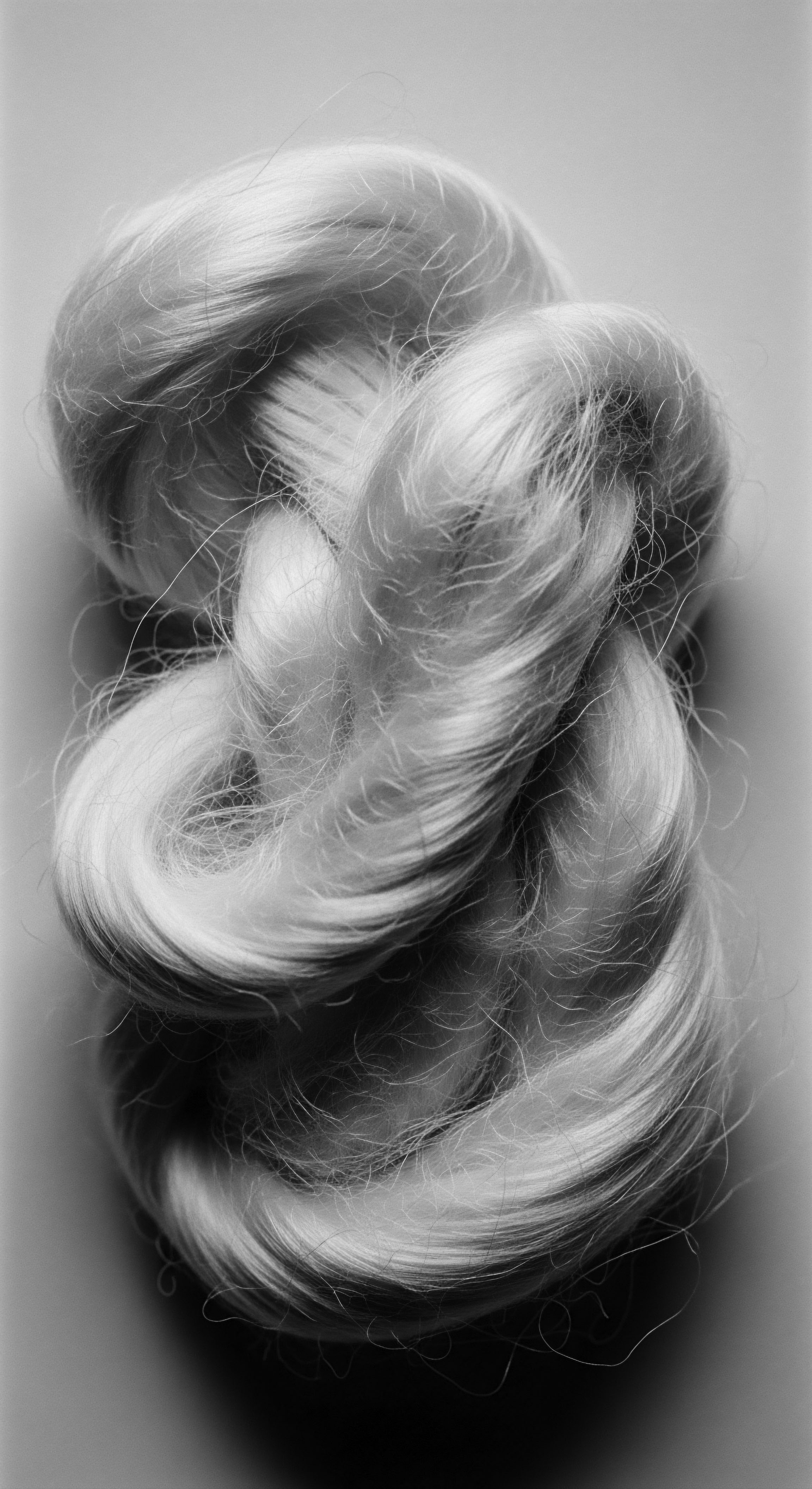
Ferritin Levels Hair
Meaning ❉ Ferritin levels hair reflect the body's iron stores, vital for hair growth, particularly within the context of textured hair's heritage.

Iron Levels
Meaning ❉ Iron levels define the body's iron stores, a critical determinant for textured hair vitality, growth, and historical resilience.

Can Internal Iron Levels Affect Textured Hair Vitality?
Internal iron levels can impact textured hair vitality by influencing follicle function and fiber strength, a connection rooted in ancestral wellness.

How Do Tight Coils Affect Moisture Levels in Textured Hair?
Tight coils are predisposed to moisture loss due to their lifted cuticle scales, necessitating deliberate hydration rooted in ancestral care.

How Does Textured Hair’s Structure Affect Its Natural Moisture Levels?
Textured hair’s unique coiled structure and lifted cuticle layers prevent natural oils from reaching the full strand, leading to lower natural moisture levels.

Why Do Historical Migrations Influence Textured Hair Vitamin D Levels?
Historical migrations reshaped skin's solar interaction, directly influencing textured hair communities' vitamin D levels through ancestral adaptations and environmental shifts.

